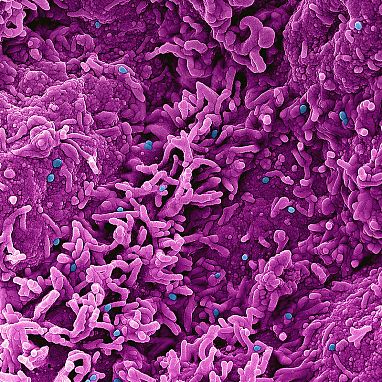
The AIDS Clinical Trials Group began enrolling more than 500 adults and children for a Phase 3 clinical trial of the antiviral tecovirimat (TPOXX) for use against monkeypox, the National Institute of Allergy and Infectious Diseases (NIAID) announced this week.
“Monkeypox can be an extremely painful infection that lasts for weeks,” said NIAID Director Anthony S. Fauci, M.D. “We currently lack efficacy data that would help us understand how well this drug may mitigate painful monkeypox symptoms and prevent serious outcomes. This clinical trial was designed to answer those important questions.”
TPOXX was manufactured by the pharmaceutical company SIGA Technologies, Inc., and is already approved by the U.S. Food and Drug Administration (FDA) as a smallpox treatment. It works by preventing the virus from spreading in the body, blocking virus particles from escaping human cells by targeting a protein found in the smallpox-causing variola virus and the monkeypox virus. Though not currently approved for monkeypox, TPOXX is available to clinicians through an expanded access or compassionate use request process. Several domestic sites are involved in the NIAID-sponsored trial, and the AIDS Clinical Trials Group noted it may eventually expand to include international sites.
The clinical trial is being led by Dr. Timothy Wilkin, professor of medicine at Weill Cornell Medicine in New York City. Anyone with monkeypox will be eligible to enroll. However, adults with severe monkeypox virus infection, those at high risk for severe disease including underlying immune deficiency, a history of or active inflammatory skin conditions, pregnant people, and children will all be enrolled in an open-label arm in which all participants receive tecovirimat. Another 530 adult participants will be randomly assigned in a two-to-one ratio to receive either TPOXX or placebo pills. Participants will take pills orally for 14 days, with dosages based on a participant’s weight.
The trial is double-blind, so neither participants nor investigators will know who is receiving what pill. Participants will be studied for at least eight weeks after trial completion and will keep a diary of symptoms and skin checks, in addition to participating in virtual and in-person clinic appointments. Safety and efficacy data will be subsequently sent to the FDA, while the study itself will be monitored throughout by an independent Data and Safety Monitoring Board.

